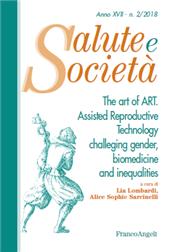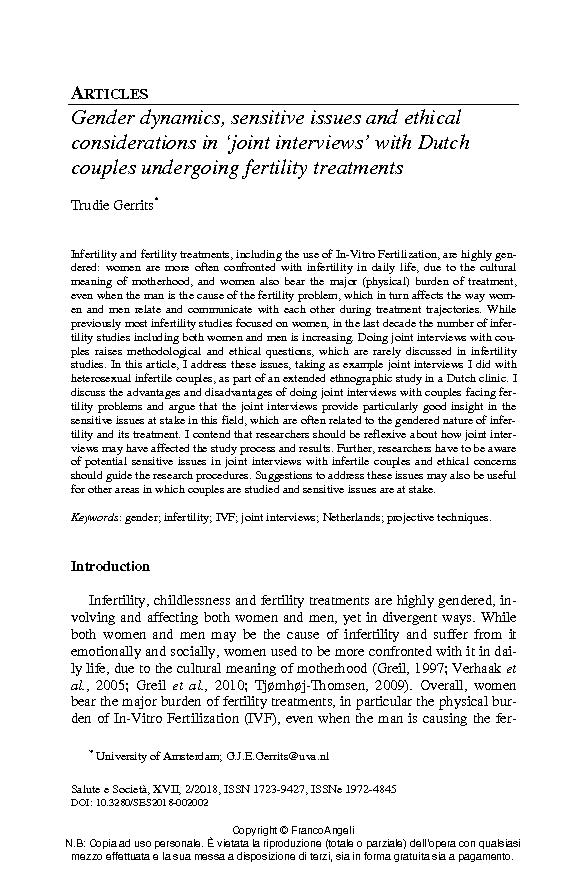Gender dynamics, sensitive issues and ethical considerations in joint interviews with Dutch couples undergoing fertility treatments
11-28 p.
Infertility and fertility treatments, including the use of In-Vitro Fertilization, are highly gen-dered: women are more often confronted with infertility in daily life, due to the cultural meaning of motherhood, and women also bear the major (physical) burden of treatment, even when the man is the cause of the fertility problem, which in turn affects the way women and men relate and communicate with each other during treatment trajectories. While previously most infertility studies focused on women, in the last decade the number of infertility studies including both women and men is increasing. Doing joint interviews with couples raises methodological and ethical questions, which are rarely discussed in infertility studies. In this article, I address these issues, taking as example joint interviews I did with heterosexual infertile couples, as part of an extended ethnographic study in a Dutch clinic.
I discuss the advantages and disadvantages of doing joint interviews with couples facing fertility problems and argue that the joint interviews provide particularly good insight in the sensitive issues at stake in this field, which are often related to the gendered nature of infertility and its treatment. I contend that researchers should be reflexive about how joint interviews may have affected the study process and results. Further, researchers have to be aware of potential sensitive issues in joint interviews with infertile couples and ethical concerns should guide the research procedures. Suggestions to address these issues may also be useful for other areas in which couples are studied and sensitive issues are at stake. [Publishers' text].
Forma parte de
Salute e società : XVII, 2, 2018-
Artículos del mismo número (disponibles individualmente)
-
Información
Código DOI: 10.3280/SES2018-002002
ISSN: 1972-4845
MATERIAS
KEYWORDS
- Gender, infertility, IVF, joint interviews, Netherlands, projective techniques



